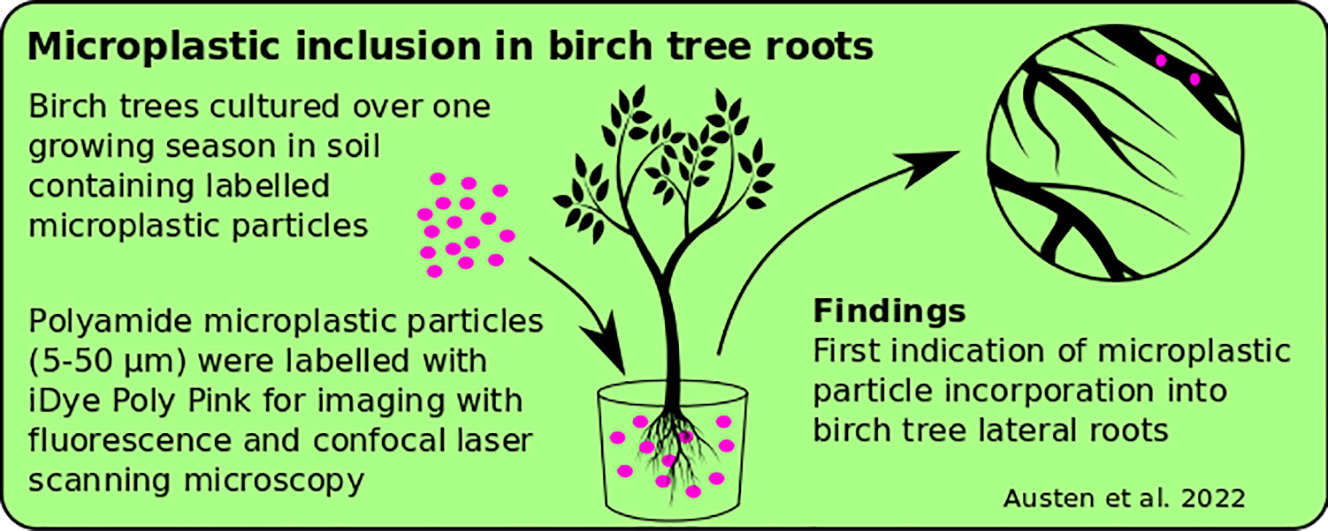Many people associate microplastics with the sea, but large numbers of them also accumulate in the soil. The research team recently found that the birch tree can absorb microplastics from the soil through its roots. Microplasts accumulate in the soil up to 23 times more than in marine ecosystems. When in the soil, they can change its properties. For example, microplastics are taken up by wheat plants.
What did the research reveal?
A group of German scientists has shown that long-lived woody plants can absorb microplasts and store them in their tissue. Birch roots grow close to the soil surface, where the largest concentration of microplasts is located. The study was published in the journal Science of the Total Environment.
“The uptake rate of microplastics and the effects on the short- and long-term health of the trees still need to be studied. But this pilot study suggests birch has real potential for long-term soil remediation solutions – including reducing the number of microplastics in soil and possibly water,” Kat Austen, the lead author, said in a statement.
Birch as a helper in the fight against microplastics
Birch is a very important tree that occurs especially in the cold regions of the northern hemisphere. It can insulate and store not only microplasts, but also heavy metals. In addition, it can also clean the air. Microplastic beads have been detected included in birch tree roots. Experiments introduced microplastic beads of 5–50 μm in size to the soil around saplings’ roots. After 5 months’ growth, microplastic beads were observed within the tree roots using fluorescence and confocal laser scanning microscopy.
“These results give a strong indication for the uptake and incorporation of soil-derived microplastic into juvenile birch roots and suggest that further investigations addressing the rate of uptake of microplastic and its implications for long term tree health are necessary to determine if birch trees are suitable microplastic remediators.,” the researchers wrote.
The study suggests that birches are ideal for bioremediation of microplastics. This does not mean that birches can solve the problem of excess plastic waste. First and foremost, people need to produce less plastic waste.
Source:
https://www.sciencedirect.com/science/article/pii/S0048969721071618
Image credit: The researchers







